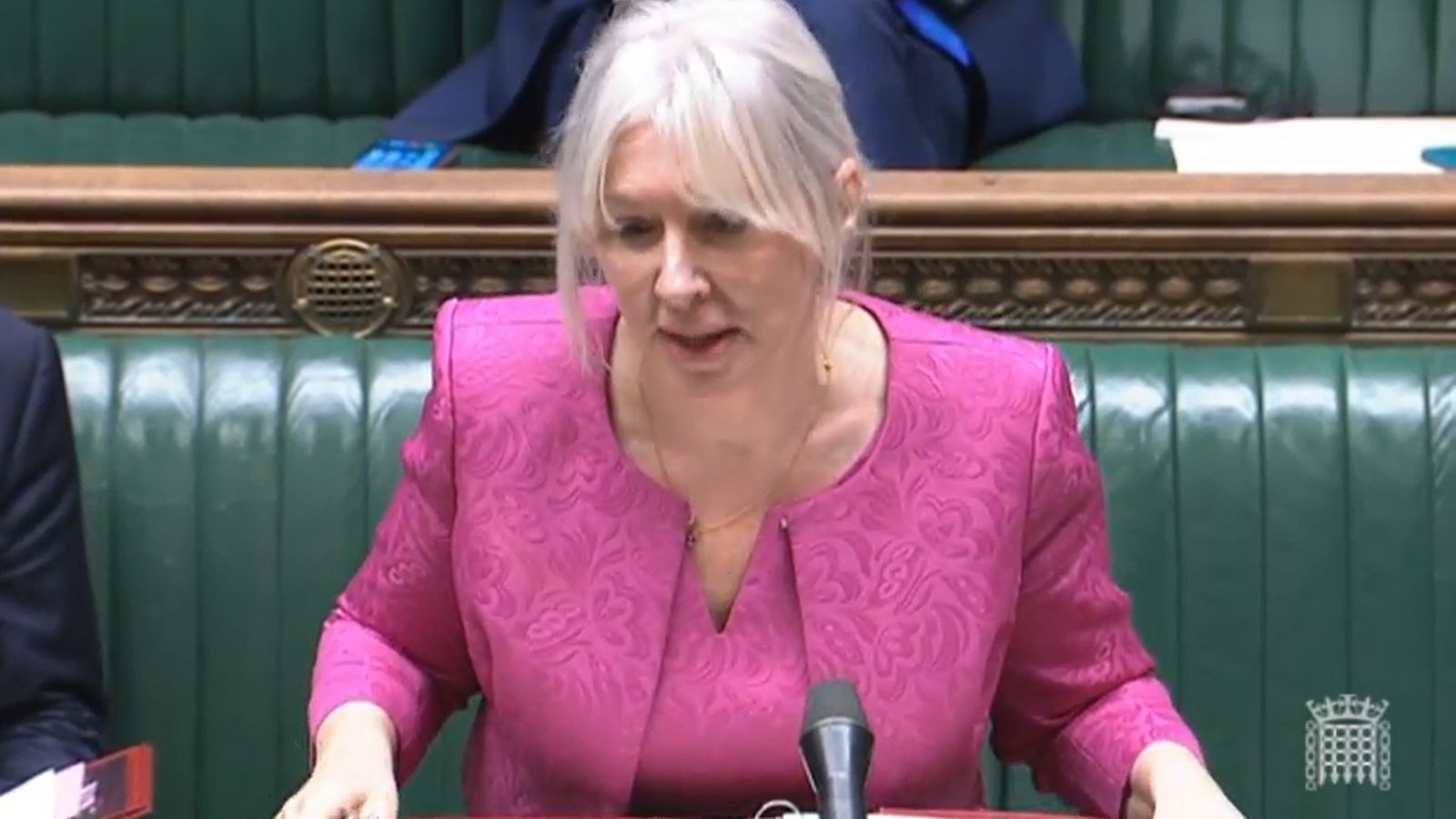The minister in charge of the new law regulating behaviour online has told social media bosses to “remove your harmful algorithms today” – or face swift criminal prosecution.
Nadine Dorries said she had been working with officials to make the proposed Online Safety Bill tougher to tackle tech firms who she said “have the ability to put right what they’re doing wrong now”.
The plans include accelerating controversial measures that could see tech executives facing jail time.
Please use Chrome browser for a more accessible video player
Under the proposals, which are currently in draft form, tech companies would have two years after the passage of the bill to prepare for the introduction of criminal sanctions.
Ms Dorries said that delay was “a nonsense”, adding she wanted the grace period shortened to “three to six months”.
She said of the social media companies: “They know what they’re doing wrong.”
Her junior minister, Chris Philp, added: “The platforms have no regard or scant regard for protecting people… it is completely unacceptable and irresponsible.”
Facebook will shut down its facial recognition system amid growing concerns over the use of such technology
Facebook becomes Meta – but do we need or want the metaverse?
Facebook changed its name to Meta – this is how the internet reacted
Ms Dorries, who was unexpectedly promoted to culture secretary by Boris Johnson in last month’s reshuffle, also confirmed that the bill would use an expansive definition of online harm, up to and including “psychological harm” caused by abuse.
The government has found the exact nature of “online harm” difficult to pin down and critics – including tech company lobbyists – argue that it has still not been properly defined in the legislation.
Ms Dorries said she believed the definition was “quite clear”, saying: “If it causes physical or psychological injury then, of course, it wouldn’t be allowed.”
However, she said that the concept of “societal harm”, which some have called on to be included in the bill, was “too complex” to put into law.
This tough talk from ministers will worry tech companies, which have been raising concerns about the details of the bill.
Twitter’s head of policy recently said it needed “far more clarity,” questioning whether it gave ministers too much power to decide what was said online.
Yet tech firms’ attempts to argue against sweeping legislation have been undermined by recent revelations increasing the pressure on the government to regulate big tech.
Ms Dorries, who like many MPs has been subjected to online abuse, was speaking to the same parliamentary committee which heard evidence last week from Facebook whistleblower Frances Haugen.
Ms Haugen, who has been releasing documents detailing the social media giant’s struggles to make its platform safe, told MPs and Lords that Facebook was “unquestionably making hate worse” – a claim the company vehemently denies.
Last week, Facebook rebranded itself as Meta, a move that many interpreted as an attempt to divert attention away from criticisms of its services, which include WhatsApp and Instagram.
Ms Dorries told Facebook that “rebranding does not work”, saying: “When harm is caused, we are coming after it.”
She said that the company should put the 10,000 engineers reported to be working on “the metaverse” onto stopping online harm instead.
Ms Dorries’ comments were welcomed by the NSPCC.
Its head of child safety online policy, Andy Burrows, said she had sent “a clear message that tech firms will have to clean up their act and have no excuse to wait until the regulator demands it”.






















